Talk to lawyer, and ask permission to record conversations. Give to HR and your boss to demand compensation for overtime. An eye 👁️ for an eye 👁️, a teeth 🦷 for a teeth 🦷
I Refused Unpaid Overtime, My Boss Reported Me to HR—So I Made Them Regret It
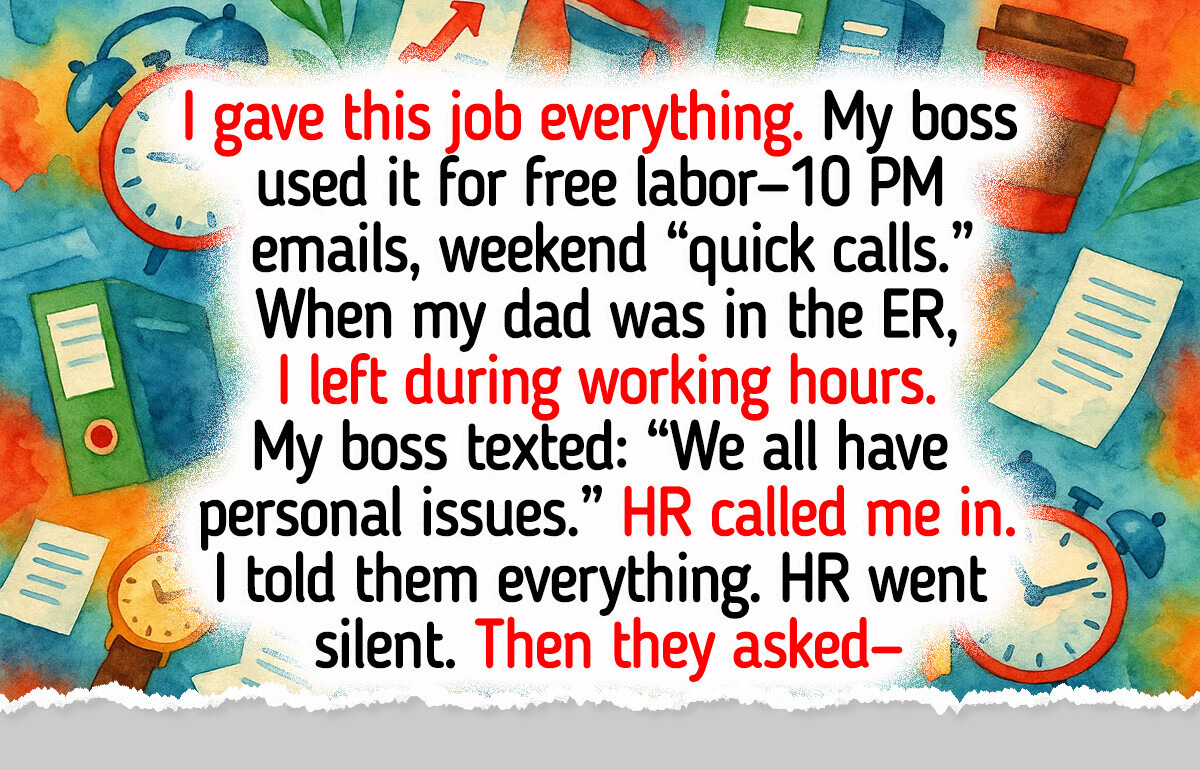
We’re told working late for free makes us “team players.” But unpaid overtime doesn’t earn respect—it invites exploitation. Our reader finally said no. Her boss didn’t applaud her boundary... he dragged her to HR, hoping to make her the villain.
The letter:
Dear Bright Side,
When I joined this company, I thought going “above and beyond” meant respect. My boss learned that fast. He didn’t ask—he assumed. I’d get messages at 10 PM: “This needs to be ready by morning.” Weekends? “Jump on a quick call.” I skipped birthdays, canceled plans because I was scared to say no.
The real breaking point? My dad ended up in the ER. I left work early to meet him. On the way to the hospital, my boss texted:
“We all have personal issues. Don’t disappear on the team.”
I didn’t respond. I spent the night in a waiting room instead of finishing his report.
The next morning, HR summoned me. He had reported me for “insubordination.” I genuinely thought I was getting fired.
But HR let me speak. I showed them the late-night emails, missed weekends, the ER text. I wasn’t the first complaint—just the first to bring proof. HR went silent. Then they asked, “Has he ever approved overtime for this?”
They didn’t fire him. They put him on monitoring. Every after-hours request now needs justification, approval, and overtime pay.
He avoids me now. No more midnight orders.
I didn’t explode. I didn’t quit.
I just let him finally face the job he created.
H.

Thank you for trusting us with your story. We know how difficult it is to speak up in a workplace that expects silence. But your courage to say just one word—"no"—proved something powerful: boundaries aren’t selfish... they are self-respect.
How to say no to your boss (without risking your job)

We were raised on one workplace rule: “Never say no to your boss.”
But here’s the twist—constantly saying yes doesn’t make you a star employee. It slowly burns you out, clouds your priorities, and paradoxically makes you less reliable.
So how do you protect your boundaries without creating office drama?
Let’s explore how to say no in ways that are respectful, clear, and surprisingly powerful.
Why “yes” can be riskier than “no”
Saying yes feels safe—no confrontation, no tension. But over time, the weight piles up: extra tasks, late hours, weekends sacrificed. And when your energy finally cracks, people don’t see your effort... they see inconsistency.
That’s why learning to say no isn’t rebellious.
It’s responsible. It’s honest.
And in the long run, it earns more respect than silence ever will.
“The difference between successful people and really successful people is that really successful people say no to almost everything.”
— Warren Buffett

Many years ago, my director called me to his office to give me a blackberry so I could be on call. My title had no such requirements. I told him this. He said I wasn't a team player. I said I guess not, then went to HR to ask if I accepted the blackberry how would I log my time for overtime pay. Turns out there was no way, since my job title did not require me to be on call. This guy was known for contacting employees on vacation or sick leave for things he could ask anyone else who was in. It was all a power play.
Clever ways to protect your time (without using the word “no”)
Saying “no” doesn’t have to sound harsh. With the right phrasing, you can protect your time and keep things professional:
Instead of flatly rejecting, try:
👉 “I can take this on, but it’ll push back project A. Which matters more right now?”
Instead of a hard refusal, try:
👉 “I’d love to help. Can we shift the deadline so I can give it my full attention?”
Instead of “That’s too much,” try:
👉 “That’s a big task—let’s focus on the outcome that matters most.”
Each response sets limits while showing teamwork.
Your boundaries are like guardrails
If you don’t set them early, people will keep moving the line. Here are some examples to inspire you:
💬 Communication → Replies during work hours only, not at 11 p.m.
📅 Time → Weekends are sacred rest days.
❤️ Respect → Critique my work, not me as a person.
Think of boundaries as invisible guardrails: they keep you safe, steady, and moving forward in the right direction.
Saying no doesn’t make you lazy or ungrateful. It makes you human—and smart. The best employees aren’t the ones who sacrifice everything. They’re the ones who know their value and protect it.
20 People Who Proved That the Kindest Hearts Wear the Strongest Armor
Comments
Related Reads
10 People Who Saw Their Coworkers’ True Colors Before It Was Too Late
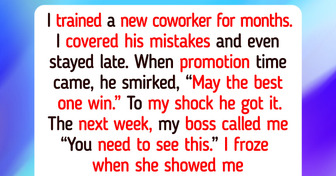
18 Acts of Kindness That Gave Someone Room to Breathe
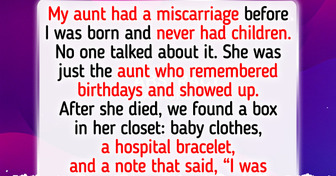
15 Stepchildren Who Finally Saw Their Stepparents as Real Family

13 Stories of Quiet Kindness That Show Superhuman Strength in Ordinary People

15 Moments That Prove Quiet Kindness Is What Keeps the World Together
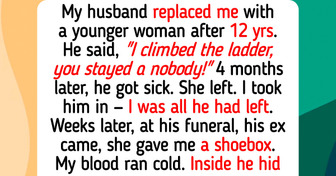
I Refused to Let My Boss Track My Every Move—I Don’t Need an “Ankle Monitor”
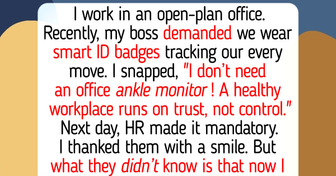
13 Life Moments That Prove Kindness Costs Little but Goes Far

I Quit After My Boss Denied Me My Lunch Break
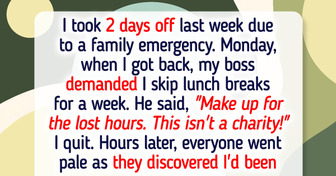
15 Moments That Prove Kindness and Compassion Are the Only Currencies That Never Lose Their Value

15 Moments That Teach Us to Stay Kind, Even When the World Gets Tough
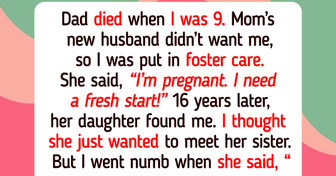
10+ Stories That Remind Us Why Small Acts of Kindness Echo Forever

I Refuse to Give Up the Passenger Seat for My MIL—She Should Learn Her Place
